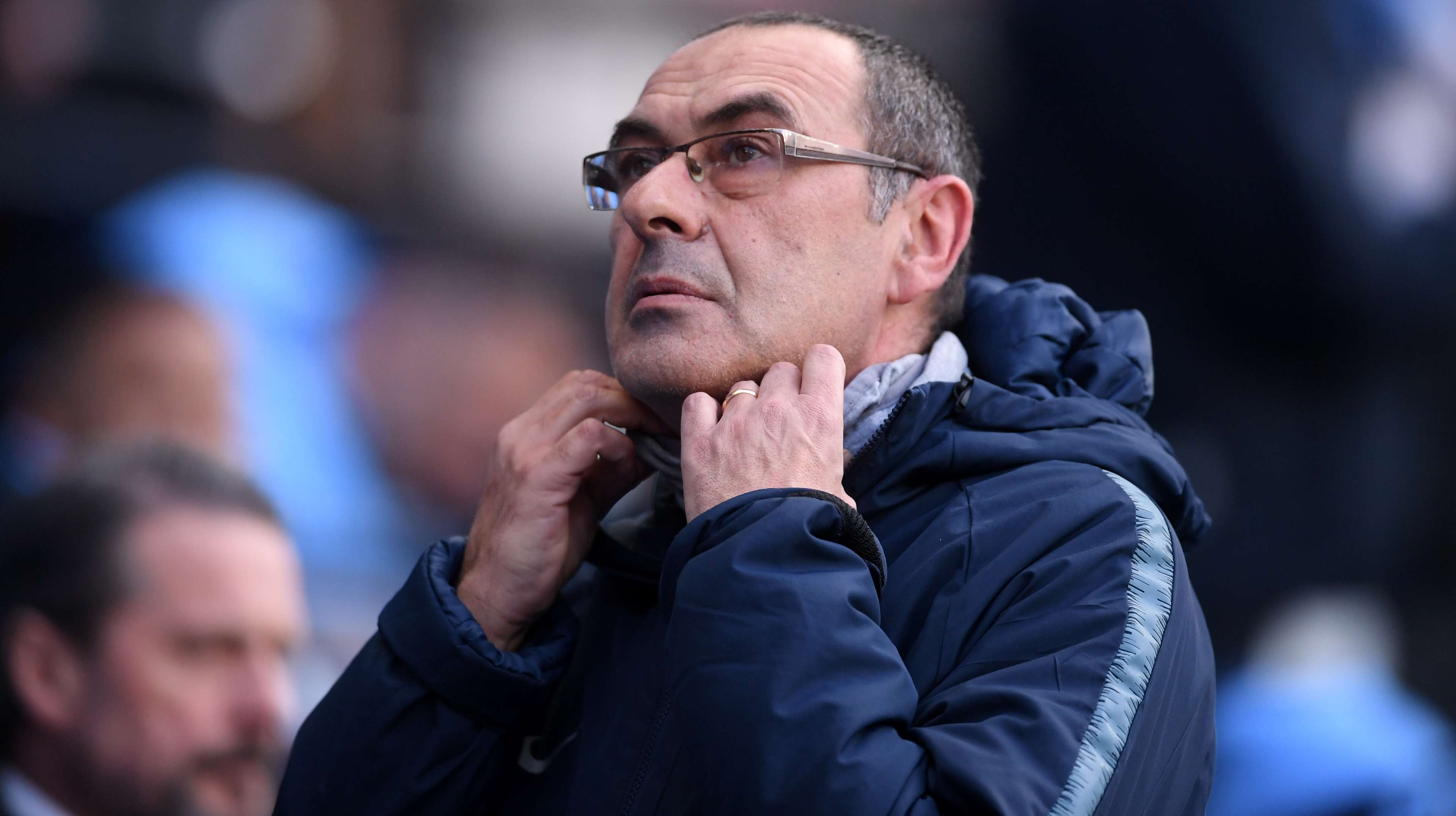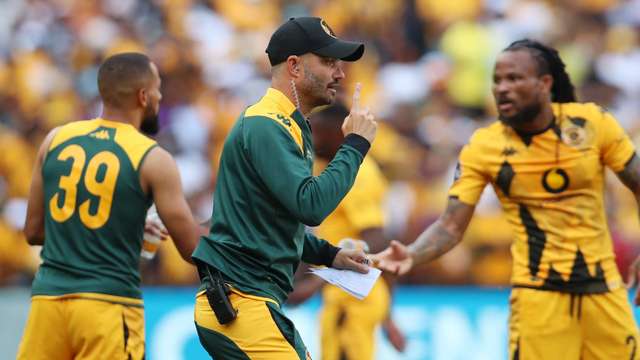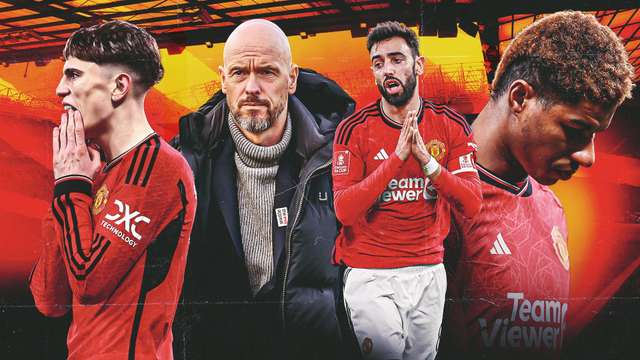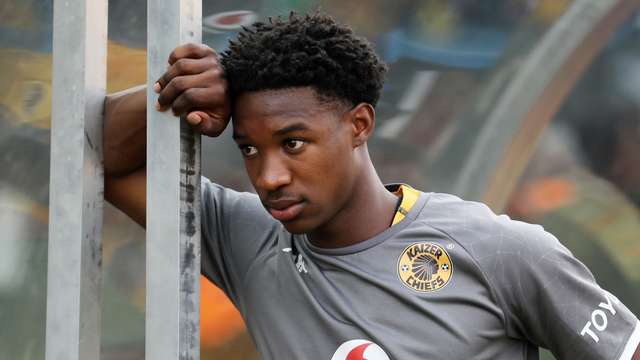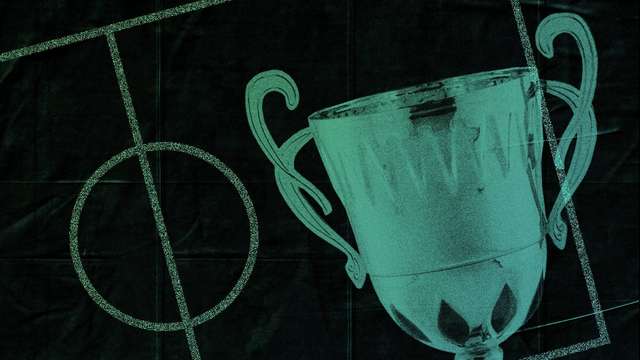At around the halfway stage of Pep Guardiola’s first season at the Etihad – with his Manchester City team sliding down the table – the Catalan coach began to talk obsessively about the chaos of the Premier League.
In an interview with Thierry Henry for Sky Sports in December 2016, Guardiola revealed that Xabi Alonso had warned him of English football’s resistance to order the previous summer. And yet there was something in his tone of voice that suggested he hadn’t really taken the advice on board – until things started to turn sour.
“Many times the ball is more in the air than [on] the grass, and I have to adapt,” Guardiola said. “I was in Munich and spoke with Xabi Alonso, and he said: ‘You have to adapt, it’s the second ball, the second ball!’ But really, you have to adapt to the second ball, and the third ball, and the fourth!”
As Maurizio Sarri enters what some believe to be his end game at Chelsea following a 6-0 thrashing at the hands of Guardiola’s City, it seems increasingly unlikely the Blues head coach will ever get his light bulb ‘second ball’ moment.
For Sarri, a robust tactical philosophy is universally applicable. For Sarri, the players’ failure to absorb his methods is a sign they are difficult to motivate, not a sign the coach needs to become less idealistic.
Next Match
Italian football has always been slower paced than in England and has always been more receptive to dogmatic tactical ideologies built on the purity of rhythm and control. And while Chelsea’s current playing style cannot be said to represent Sarriball – with its sharp one-touch football, sudden vertical counters, and swarming positional fluidity – nevertheless there is something in Chelsea’s staleness and strategic consistency that speaks to the Italians’ idea of time and space.
“I never before was focused on [second balls], because in Barcelona or in Spain, more or less the players try to play for the culture,” Guardiola told Henry. “In Germany it was more physical, but not like here.”
This idea of playing for the culture speaks to Sarri’s approach at Chelsea, where his players are expected to patiently cultivate a tactical identity through repetition of action, through the gradual movement towards goal. But English football is too random, too thuggish, too suspicious of theory for such an approach to be respected by either the Chelsea players or their opponents.
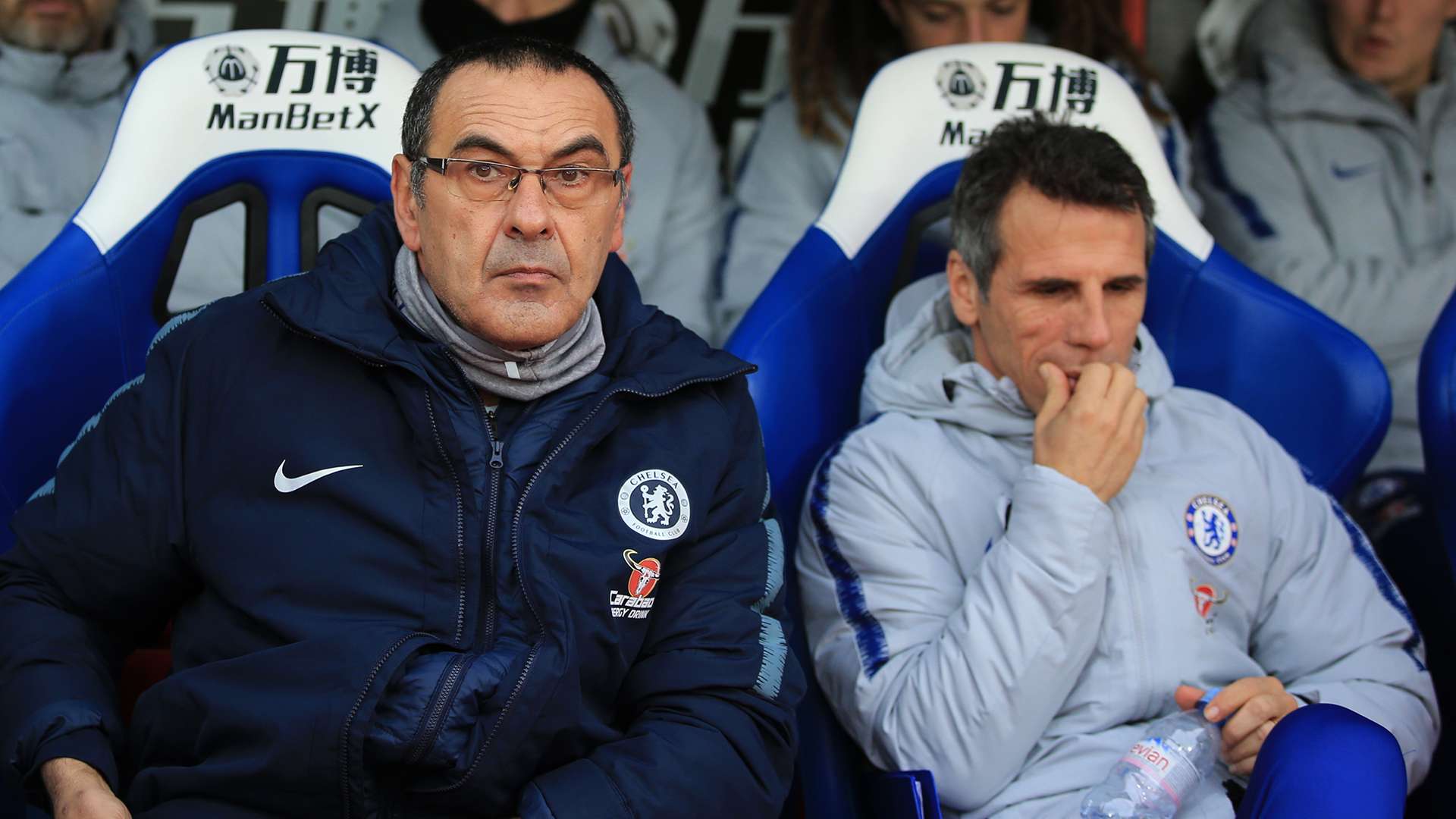 Getty
Getty
It’s an important cultural difference, one exemplified by the contrasting reaction to Sarri and Unai Emery despite Chelsea and Arsenal sitting level on points in the Premier League table.
Emery chops and changes with feverish concern, his decisions erratic and delightfully anxious; there is something in the burrowing energy of Matteo Guendouzi, in the desperation of the tactical switches, that speaks to the frenzied disorder of the Premier League.
The bite, the panic, the unpredictability: Emery ‘gets it’; he assimilates to the league where Sarri imposes theory.
And this cultural narrative is important. Given time, Sarri would surely come good at Chelsea, but boardroom decision-making tends to go with the wind of public opinion.
He needs to shake things up, starting with the defining emblem of his tenure so far: Jorginho.
Where is Sarri’s Plan B? It’s the question everyone is asking and the question that perplexes a manager still naively seeking absolute tactical control, but Sarri’s stubbornness will be his downfall if he does not alter his central midfield.
Jorginho’s intelligent (though often sideways) passing from the base of midfield betrays Sarri’s misunderstanding of the differences between Italian and English football; since everything filters through Jorginho, it has become far too easy to man-mark the midfielder and stunt Chelsea’s entire attacking master plan.
His poor defensive play - most notably in failing to screen across the width of the pitch in order to mop up an opposition counter at source – is what separates him from the likes of Fernandinho - and, of course, N’Golo Kante, the best defensive midfielder in the world and a generation-defining footballer.
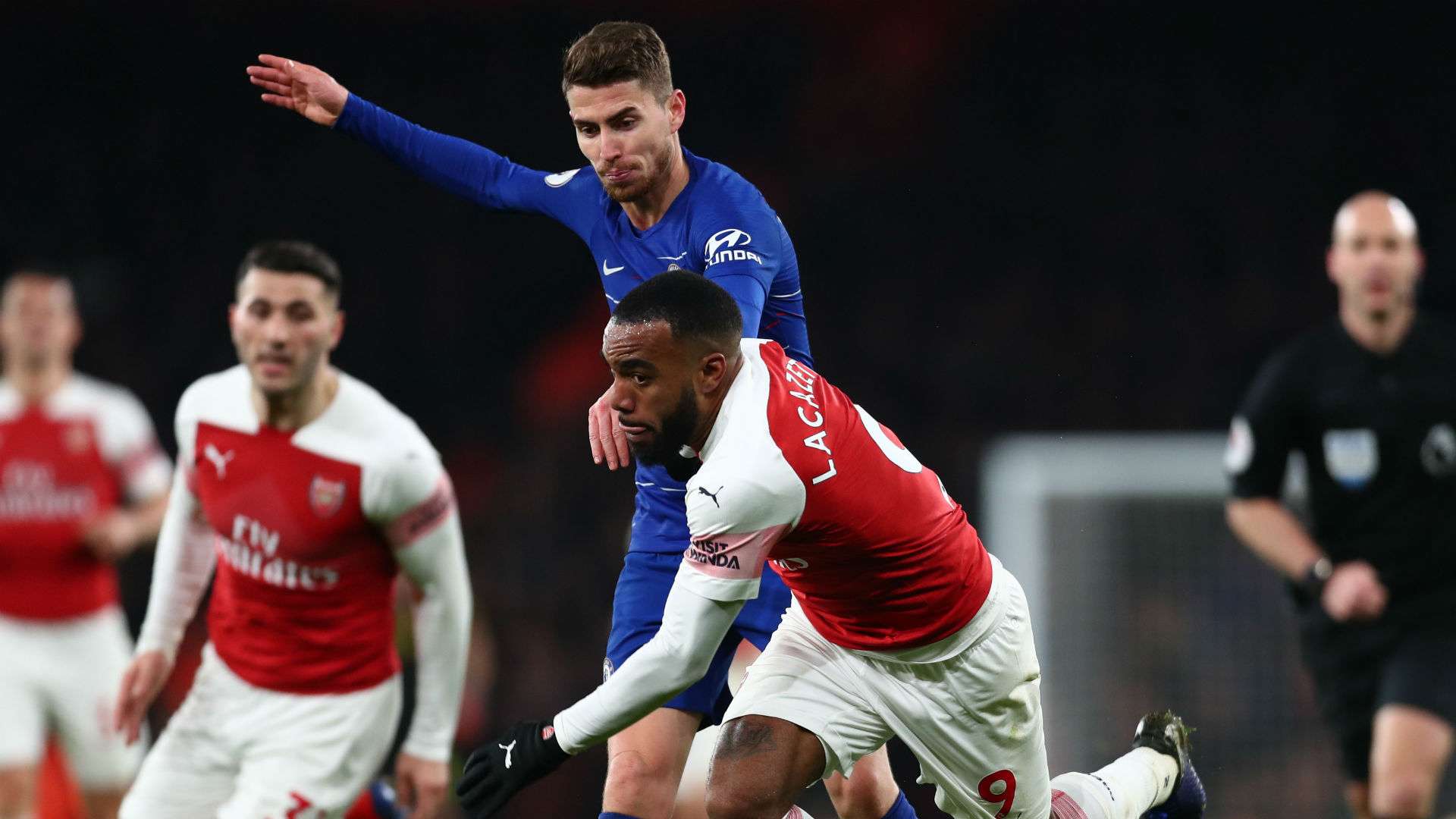 Clive Rose
Clive Rose
Kante’s unusual mixture of attributes – he is an astonishing tackler and interceptor, yet possesses the agility and technique to conjure counter-attacks after winning the ball – made him the most important player in both Leicester City’s and Chelsea’s title-winning seasons.
He only won the PFA Player of the Year award for the latter year, but he should have won in both. Kante is, in short, a genius, and to attempt to teach him an entirely different role remains the most bizarre decision Sarri has made.
Simply swapping Kante and Jorginho around could be the big fix Chelsea need. Kante could control the second balls and thus relieve pressure on a back four desperately struggling to keep up with the pace of opposition counter-attacks, while Jorginho’s passing ability means he could handle receiving the ball with his back to goal (and under pressure) in the opposition half far more comfortably than Kante is able to.
The defence clearly needs work, too, although the toils of the full-backs would be significantly reduced if Chelsea had greater control of midfield. An inability to cope with the transitions causes panic in the Chelsea defence, none of whom are coping particularly well with frantically back-pedalling.
Sarri apologists are keen to point out that the current Chelsea squad isn’t suited to his style of football, particularly in the final third, and indeed every new manager should be given several transfer windows to re-sculpt the squad in their image.
The arrival of Gonzalo Higuain – a striker capable of dropping short to link play as well as spinning in behind - has already brought flashes of Sarriball to Stamford Bridge, while Christian Pulisic is the sort of nimble, pressing winger who could excel under the Italian.
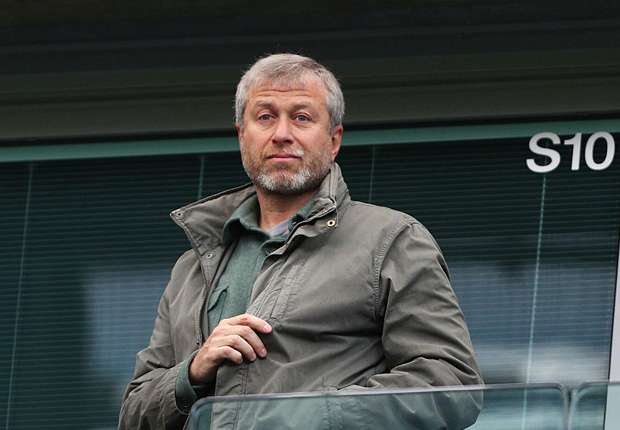 Getty Images
Getty Images
But Roman Abramovich is not expected to sanction major renovation work this summer, despite the fact Chelsea’s squad is so clearly a mishmash of differing styles, representing the tug-of-war between various ex-managers and Abramovich confidants.
Again, the buzz word here is: adaptation. Sarri must learn to adjust his tactics to fit his players, and after six months in the dugout there is little sign he is willing to do so.
It is worth remembering Sarri has never managed an over-dog like Chelsea and has never managed outside of Italy; this is a new situation for Sarri despite his vast experience in the game.
Consequently he should be given time to acclimatise to the role, but to do so will require humility, a loosening of his own gospel teachings, and an appreciation of what makes English football so chaotic - so infuriatingly resistant to grand tactical identities.
Right now, Chelsea fans are growing tired of the same formation, the same team selection, and the same substitutions. It’s a boredom that could be spreading to players who, historically at least, hold a worrying amount of power at Stamford Bridge.
Sarri deserves time to get things right. But since his press conferences have become confessions of an inability to motivate, rather than Guardiola-esque musings on how to adapt to the English game, Sarri’s chances of surviving the season – surviving in this messy, unforgiving division - are slim.
